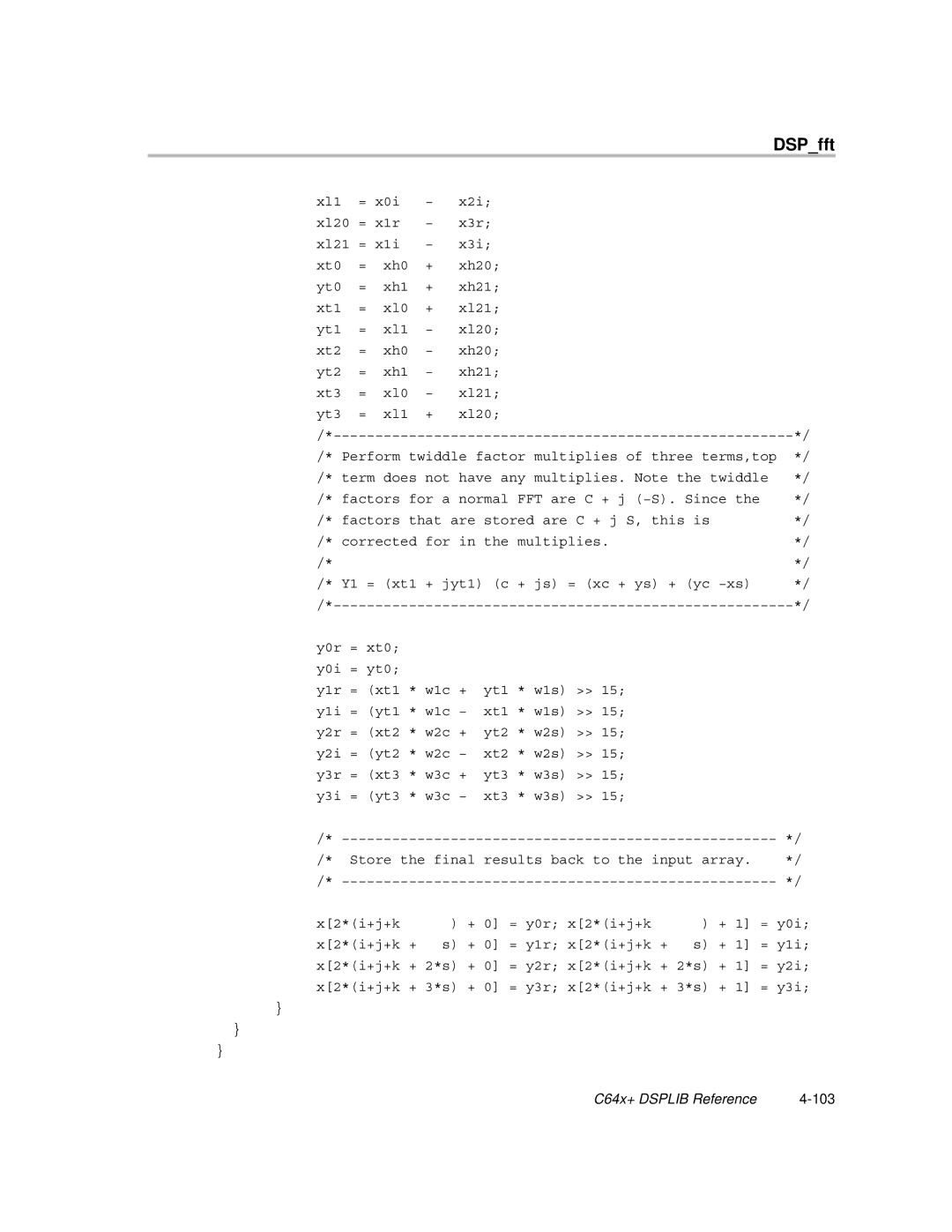DSP_fft
xl1 | = x0i | − | x2i; | |
xl20 | = x1r | − | x3r; | |
xl21 | = x1i | − | x3i; | |
xt0 | = | xh0 | + | xh20; |
yt0 | = | xh1 | + | xh21; |
xt1 | = | xl0 | + | xl21; |
yt1 | = | xl1 | − | xl20; |
xt2 | = | xh0 | − | xh20; |
yt2 | = | xh1 | − | xh21; |
xt3 | = | xl0 | − | xl21; |
yt3 | = | xl1 | + | xl20; |
/*−−−−−−−−−−−−−−−−−−−−−−−−−−−−−−−−−−−−−−−−−−−−−−−−−−−−−−−*/
/* Perform twiddle factor multiplies of three terms,top | */ |
/* term does not have any multiplies. Note the twiddle | */ |
/* factors for a normal FFT are C + j (−S). Since the | */ |
/* factors that are stored are C + j S, this is | */ |
/* corrected for in the multiplies. | */ |
/* | */ |
/* Y1 = (xt1 + jyt1) (c + js) = (xc + ys) + (yc −xs) | */ |
/*−−−−−−−−−−−−−−−−−−−−−−−−−−−−−−−−−−−−−−−−−−−−−−−−−−−−−−−*/
y0r = xt0; y0i = yt0;
y1r = (xt1 * w1c + yt1 * w1s) >> 15; y1i = (yt1 * w1c − xt1 * w1s) >> 15; y2r = (xt2 * w2c + yt2 * w2s) >> 15; y2i = (yt2 * w2c − xt2 * w2s) >> 15; y3r = (xt3 * w3c + yt3 * w3s) >> 15; y3i = (yt3 * w3c − xt3 * w3s) >> 15;
/* −−−−−−−−−−−−−−−−−−−−−−−−−−−−−−−−−−−−−−−−−−−−−−−−−−−− */
/* Store the final results back to the input array. */ /* −−−−−−−−−−−−−−−−−−−−−−−−−−−−−−−−−−−−−−−−−−−−−−−−−−−− */
x[2*(i+j+k | ) + 0] | = y0r; x[2*(i+j+k |
| ) + 1] | = y0i; | ||||
x[2*(i+j+k + | s) + 0] | = y1r; x[2*(i+j+k | + | s) + 1] | = y1i; | ||||
x[2*(i+j+k + 2*s) | + | 0] | = y2r; x[2*(i+j+k | + 2*s) | + | 1] | = y2i; | ||
x[2*(i+j+k + 3*s) | + | 0] | = y3r; x[2*(i+j+k | + | 3*s) | + | 1] | = y3i; | |
}
}
}
C64x+ DSPLIB Reference |
|
